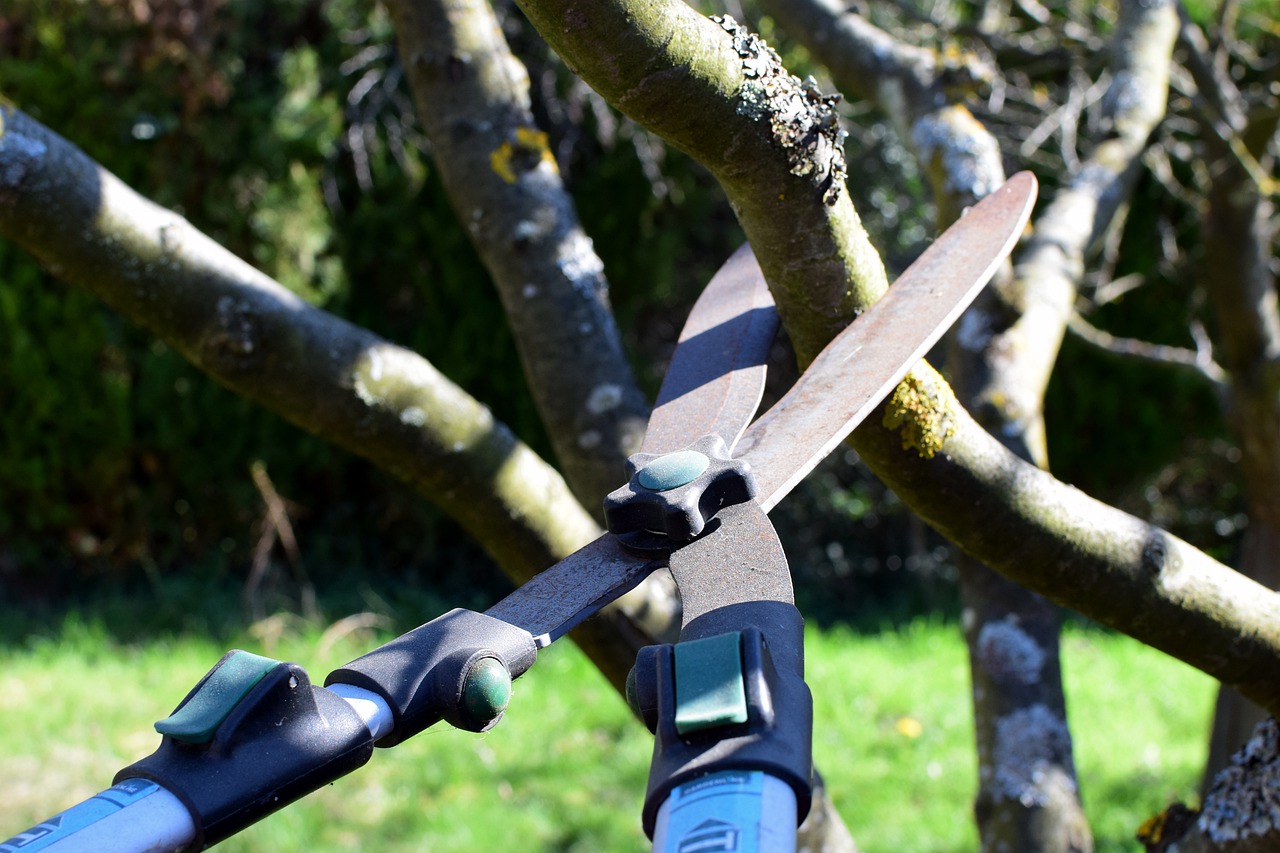Did you know your garden and the local green spaces are living habitats for wildlife and insects?
If you cut back or trim your plants too soon, you are removing necessary pollen sources for insects, such as bees and butterflies. It can also reduce or eliminate habitat for birds and small mammals that are dependent on these for food and shelter
According to Article 39 of the Federal Nature Conservation act (BNatSchG), excessive cutting and grafting of trees, hedges, shrubs, and woody plants are prohibited between 1 March to 30 September. This is referred to as Pflanzen-Schonzeit.
You are allowed to gently trim vegetation for general care and maintenance. If birds are nesting a tree or bush, you are not allow to trim it.
Regional laws
Rules for gardening are also regulated by the federal states and sometimes also by the municipality. These can include the distance between trees, building a greenhouse, removal of lawn and bushes, stone gardens ( Schottergärten ) etc. Your rental agreement and home association rules can also dictate what you can and can not do. A common issue is plants or plant boxes on the balcony.
Some examples:
- Nachbarrecht Baden-Württemberg
- Gerätehütten und Gartenhäuser Baden-Württemberg
Legal
- Gesetz über Naturschutz und Landschaftspflege (Bundesnaturschutzgesetz – BNatSchG) legistlation in German
- Fines
- Überhang Trees or bushes hanging over the property, also fruit. See sections 910 and 912.
- For more info about trees, see this website (in German)
- German Civil Code in English
Schrebergarten (Allotment/urban gardens)
These are small inner-city gardens. Finding one to rent is extremely difficult. They are also known as Kleingartenanlae or Gartenkolonie. Wohnglück has an article on how to get a Kleingarten
What else do you need to consider
You are only allowed to mow your lawn from Monday to Saturday, from 7:00 in the morning to 20:00. You are not allowed to mow your lawn on a Sunday or public holiday. If your tools do not have the correct EU Environment labels, you can only use them from Monday to Friday between 9:00 and 13:00 and 15:00 to 17:00. The fines are quite hefty.
When there are flowers like anemones, tulips, crocuses, daffodils, hyacinths, snowdrops, lily of the valley and other bulb varieties on your lawn, you need to wait until the flowers and the leaves have completely died before you mow the lawn.
Weed Killers:
The use of weed killers is only permitted on agricultural, horticultural and forestry areas. Weed killers may not be used on paved surfaces. These include paths and squares such as sidewalks, park and cemetery paths, garage entrances, courtyard areas, sports facilities, communal and commercial areas of all kinds. It is irrelevant whether the herbicides are approved or are home remedies such as vinegar or road salt. Violators face fines of up to €50 000. See the plant protection act for more
Vocabulary
| English Term | German Term | Information |
|---|---|---|
| Seeds | das Saadgut Die Samen | |
| Seedlings | die Jungpflanzen die Keimpflanzen das Sämling | |
| Cuttings | Die Stecklingen | |
| Lawn | Der Rasen Die Liegewiese Die Grasflächen | a lawnmower is der Rasenmäher |
| Gravel garden | Der Schottergärten | |
| Overhang (tree branches) | Der Überhang | |
| Greenhouse | Das Gewächshaus | |
| Tree | Das Baum | |
| Shrub | Der Strauch | |
| Bushes | Die Büsche | |
| Trimming | Zurückschneiden Trimmen | Hedge trimmers are Heckenscheren |
| Leaves | Das Laub | Leaf blower is der Laubbläser |
| Shovel Gardenfork | die Schaufel or Gärtnerspaten Die Grabegabel or Spatengabel | |
| Ground cover plants | Die Bodendecker | |
| Indoor plants | Die Zimmerpflanzen | |
| Creepers | Die Kletterpflanzen | |
| Weeds | Die Unkraut | Weedkiller is das Herbizid |
| Pests | Die Schädlinge | Pest control is die Schädlingsbekämpfung |
| Plant pots | Die Pflanzentöpfe | Indoors – Innen Outdoors – Außen |
Resources on the web
Related content

Housing in Germany
Types of Housing Flat – Wohnung / Apartment. Atlbauwohnung – An old building, that might be protected Dachgeschosswohnung – penthouse but usually with slanted walls

Minijobs and hired help
Are you looking for services like cleaning, someone to look after the kids or help out with the gardening?The sites we list here are currently

German laws and regulations
Disclaimer The information provided on this website is for general informational purposes only and is not intended to constitute legal advice. You should consult a



You must be logged in to post a comment.